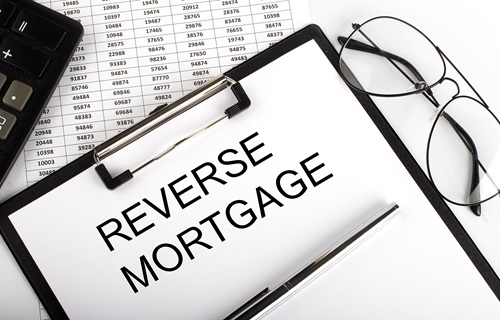
As retirement brings new challenges, financial stability often becomes a priority for senior homeowners. A reverse mortgage offers a way for them to unlock their home equity. It provides a flexible source of funds for various needs. However, inheriting a home with a reverse mortgage can introduce a range of decisions for the heirs. Understanding your options ahead of time is essential for a smoother process when the loan becomes due.
What Is a Reverse Mortgage and How Does It Work?
A reverse mortgage is officially called a Home Equity Conversion Mortgage (HECM). It allows older homeowners to access their home’s equity without the need for monthly mortgage payments. Instead, the loan balance grows over time and is repaid only when the property is sold, the homeowner moves out, or they pass away. This makes it a practical solution for retirees who want to boost their income or manage expenses.
The proceeds from a reverse mortgage can be used in several ways. For instance, some homeowners use the funds to cover everyday bills, pay off debts, or create an emergency savings buffer. Others invest in home improvements, ensuring their house remains comfortable and accessible as they age. With multiple payment options—such as a lump sum, line of credit, or monthly advances—this type of loan offers significant flexibility.
What Happens When the Reverse Mortgage Becomes Due?
When the last surviving borrower no longer meets the loan obligations, the reverse mortgage becomes due. At this point, heirs must decide what to do with the property. The primary options include keeping the home, selling it, or handing it over to the lender. Understanding each choice can help you make an informed decision.
Keeping the Home
If you wish to retain the property, you will need to repay the reverse mortgage. Typically, the amount required is the lesser of the full loan balance or 95% of the home’s appraised value. This option works well for families who wish to keep the home for sentimental reasons or plan to use it as a residence or investment property.
Selling the Home
Another option is to sell the house and use the proceeds to settle the loan. For example, if the home sells for more than the loan balance, any remaining funds will go to you as the heir. On the other hand, if the home’s value is less than the outstanding balance, Federal Housing Administration (FHA) insurance covers the shortfall, ensuring you are not responsible for the difference.
 Home Equity Greenville SC
Home Equity Greenville SCTransferring Ownership to the Lender
If keeping or selling the home is not practical, you can opt to transfer ownership to the lender through a deed in lieu of foreclosure. This option allows you to walk away from the property without any further obligations, which can be helpful in situations where maintaining or selling the home would be too burdensome.
What About Non-Recourse Protection?
Reverse mortgages in Greenville SC are designed with non-recourse protection, which means you or your parents cannot owe more than the home’s appraised value when the loan is repaid. If the property’s value decreases or the loan balance exceeds its worth, FHA insurance ensures that neither you nor your family is held liable for the difference.
Costs and Obligations to Consider
Just like traditional mortgages, reverse mortgages come with costs that include both upfront fees and ongoing expenses. For example, your parents may have paid for an appraisal, origination fees, and mortgage insurance when setting up the loan. Additionally, they are responsible for maintaining the home, paying property taxes, and keeping homeowner’s insurance current. Failure to meet these obligations can trigger the loan to become due.
As an heir, it’s important to understand these factors to anticipate any implications when inheriting the property. For example, ongoing costs like property taxes may continue if you choose to keep the home.
Are There Alternatives to a Reverse Mortgage?
While reverse mortgages are a suitable choice for many retirees, alternatives like traditional refinancing or a Home Equity Line of Credit (HELOC) may also be considered. However, these options often require monthly payments, which can be challenging for seniors on a fixed income. This is why many people turn to reverse mortgages, as they provide financial flexibility without the pressure of regular repayments.
Balancing Retirement Needs with Inheritance
Although a reverse mortgage in Greenville SC may reduce the inheritance left to heirs, it enables homeowners to enjoy a more comfortable retirement while staying in their home. For instance, the loan proceeds can cover medical expenses, home modifications, or simply provide peace of mind. As home values often appreciate over time, there may still be equity left to inherit even after the loan is repaid.
Planning Ahead for Peace of Mind
To ensure a smoother transition, it’s important to discuss the reverse mortgage with your parents while they are still able to share their preferences. Understanding their goals and the loan terms can help you prepare for decisions about the property later. Open communication also helps clarify expectations, reducing stress during an already emotional time.
If your family is considering a reverse mortgage, learning more about the process and options available is essential. Reach out to a trusted professional today to explore how this solution could work for your parents and provide peace of mind for your family’s future.
Call Reverse Mortgage Specialist now to start the conversation! Let us help you decide if this option is the best for you.


 reverse mortgage in Greenvile SC
reverse mortgage in Greenvile SC
 Reverse mortgage in Greenville SC
Reverse mortgage in Greenville SC
 reverse mortgage in Greenville SC
reverse mortgage in Greenville SC